Alumni
Meet our alumni - making a difference in the world
Featured Alum
Chris Lu, '17
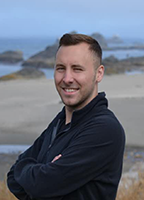 Chris Lu (who formerly went by Saul McGuire) had much success in his senior year. He thrived academically and served as a representative for the English Department, all while working towards a larger goal—to become a librarian in Seattle. For Chris, completing his English Literature degree has been a big step towards reaching this goal.
Chris Lu (who formerly went by Saul McGuire) had much success in his senior year. He thrived academically and served as a representative for the English Department, all while working towards a larger goal—to become a librarian in Seattle. For Chris, completing his English Literature degree has been a big step towards reaching this goal.
As a nontraditional student, Chris’ undergraduate path wasn’t always linear. Chris has been in college before, considered ministry, and served in the military before his time at Seattle University. “While I was in the military, I was working in logistics, sorting and putting away parts. I liked the idea of getting into archiving, and then I realized there’s a lot more openings, especially in [Seattle], for digital media and information and being a curator of that kind of thing. I moved to Seattle to eventually go into this specific program…It’s nice to set a goal and see everything line up along the way.”
Chris’ hard work will culminate this fall, when he begins the Masters in Library Information Science program at the University of Washington. From there, Chris aspires to work as a research librarian, “learning how to more efficiently find information for people, how to consolidate that information, and how to file, curate, manage, and archive information and forms.”
As for his time at SU, Chris notes, “I want to express my gratitude to the English Department and the professors I had, because I wouldn’t be getting into the program that is literally my dream if it wasn’t for them.” He also advises peers to “put your head down and charge through, it’s over before you know it, and see you on the other side.” Chris served the department as a student representative to the Student Outreach and Professional Development Committee, where he engaged in student recruitment and retention initiatives, and helped plan career and grad school information workshops.
Outside of the academic setting, Chris has spent the summer break traveling the West Coast with his husband and their dog.
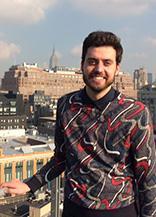 David Strand graduated in 2015, double majoring in Creative Writing and Visual Art. David plunged into his career immediately following his degree, as he started working full time at Seattle’s Frye Art Museum, during finals week of his senior year. Initially hired as a Curatorial Assistant, he was tasked with project managing the museum’s largest exhibition to date, Genius / 21 Century / Seattle, a celebration of exceptional multidisciplinary and collaborative artistic practice in Seattle, which featured over 65 artists.
David Strand graduated in 2015, double majoring in Creative Writing and Visual Art. David plunged into his career immediately following his degree, as he started working full time at Seattle’s Frye Art Museum, during finals week of his senior year. Initially hired as a Curatorial Assistant, he was tasked with project managing the museum’s largest exhibition to date, Genius / 21 Century / Seattle, a celebration of exceptional multidisciplinary and collaborative artistic practice in Seattle, which featured over 65 artists.
Following that exhibition, David was promoted to Manager of Exhibitions and Publications, then was promoted again in September of 2017, to the Head of Exhibitions and Publications role; presumably, an ideal blend of his two SU majors, and a great example of working up through the ranks in an organization, into a position that highlights one’s expertise. To date, David has overseen the realization of twenty exhibitions and four publications at the Frye.
For David, being an English major meant pushing his critical thinking faculties, honing his writing skills while expanding his understanding of both the possibilities and limitations of language, and questioning assumptions in order to broaden his worldview, and accommodate multiple perspectives.
Reflecting on his time at Seattle U, David has the following advice for current English majors: “Get involved in the wider Seattle community, literary or otherwise, by attending events and gaining internship experience. Your professors are excellent resources and often have valuable connections in the city that can help you build a bridge from university to the working world. In short, office hours can be for more than just discussing your assignments.”
Focusing on the future, David would like to pursue his Master’s degree, and seek out more creative projects and collaborations.
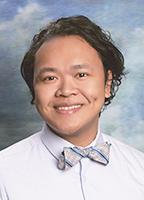 Carlito Umali graduated with his BA in English Literature in 2008. Today, five years into his teaching career, he is a middle school teacher at Renton School District’s Risdon Middle School, where his curriculum focuses on 21st century skills, STEM integration, and project-based learning.
Carlito Umali graduated with his BA in English Literature in 2008. Today, five years into his teaching career, he is a middle school teacher at Renton School District’s Risdon Middle School, where his curriculum focuses on 21st century skills, STEM integration, and project-based learning.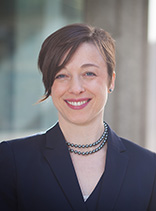 English Department alumna Michelle DeLappe graduated from Seattle University while studying abroad in France in 1998. The SU Honors Program inspired Michelle to switch from a pre-med major to English, as she simply loved her literature classes. She landed her first, post-graduation job in a bakery in the Alps, as part of a work exchange program.
English Department alumna Michelle DeLappe graduated from Seattle University while studying abroad in France in 1998. The SU Honors Program inspired Michelle to switch from a pre-med major to English, as she simply loved her literature classes. She landed her first, post-graduation job in a bakery in the Alps, as part of a work exchange program.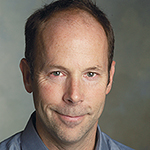 He oversees the editorial content of a print magazine for more than 13 million subscribers on four continents, an online version, an app, and an annual cookbook run of three million. For The Costco Connection editorial director Tim Talevich '78, each day brings a new challenge.
He oversees the editorial content of a print magazine for more than 13 million subscribers on four continents, an online version, an app, and an annual cookbook run of three million. For The Costco Connection editorial director Tim Talevich '78, each day brings a new challenge.